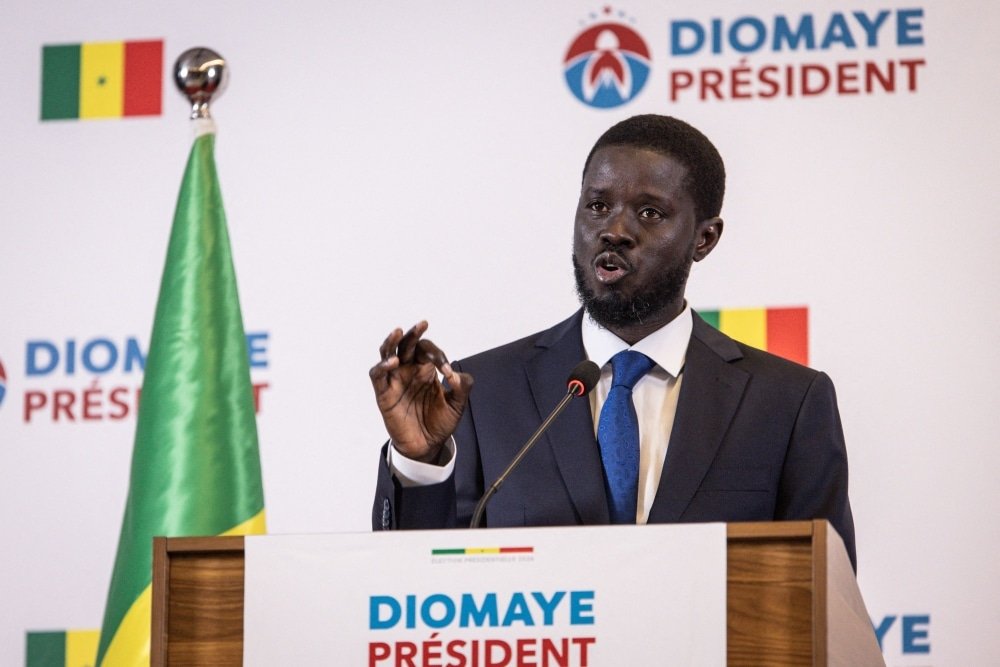Mr. Diomaye Faye has been officially announced as the winner of the presidential election in Senegal, securing 54.28% of the votes in the initial round after the votes were counted.
According to reports from the country’s vote counting commission, which is part of the judiciary, Faye outperformed the candidate from the ruling coalition, former prime minister Amadou Ba, who received 35.79% of the votes.
Although Faye’s victory still needs to be confirmed by Senegal’s top constitutional body, it is expected to be finalized in the coming days.
At 44 years old, Faye, who was released from prison just 10 days before the election, aims to bring about a change in the current political system and is on track to become the youngest president in Senegal’s history.
If validated, this would mark the first instance since Senegal gained independence from France in 1960 that an opposition candidate has won in the initial round of voting.
Aliou Mamadou Dia, who came in third out of 19 candidates on the official list, received only 2.8 percent of the vote, as reported by Amady Diouf, the president of the national vote counting commission at the Dakar court.
Even though Dia’s victory in Sunday’s election was already evident from unofficial results, the margin of Faye’s win was officially confirmed by the vote counting commission, which is part of the judiciary.
The voter turnout of 61.30 percent was lower than in 2019, when President Macky Sall won a second term in the first round, but higher than in 2012.
The announcement of the official provisional results appears to pave the way for a peaceful transfer of power from Sall to his successor.
The political crisis caused by Sall’s last-minute decision to postpone the election and the rushed electoral schedule raised concerns about whether the transfer of power could happen before Sall’s term ends on April 2.
However, a smooth transition now seems possible in the stable and democratic West African nation, as long as no appeals are filed.
Presidential candidates have 72 hours after the commission announces the results to challenge them before the Constitutional Council.
The Constitution specifies that if no appeals are filed within a certain timeframe, the Council will announce the final results of the vote right away.
However, if an objection is raised, the Council has five days to make a decision and potentially cancel the election.





